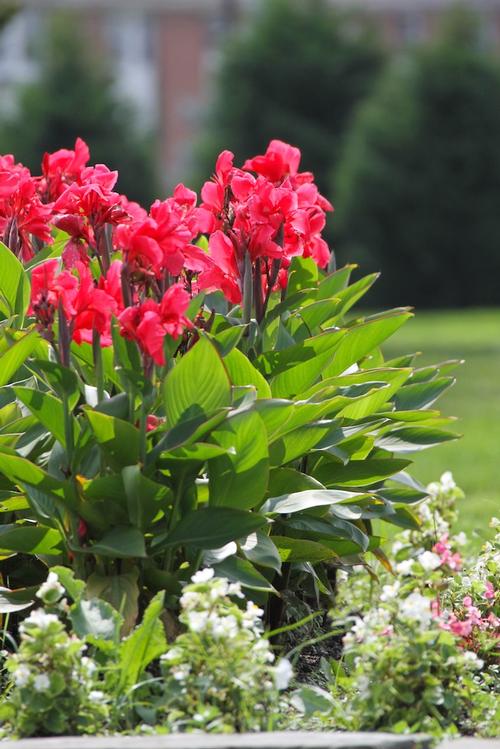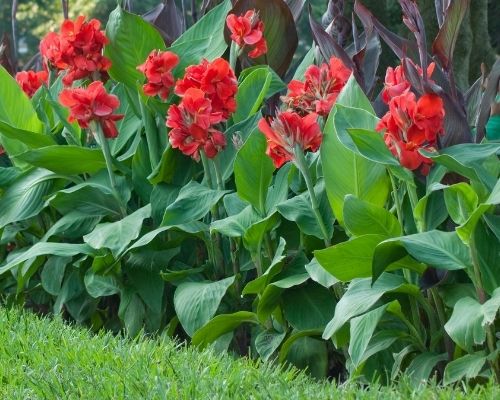Cannas Deserve a Place in Every Garden
There is nothing subtle about cannas. With their big leaves, impressive height and vibrant, orchid-like flowers, these flashy extroverts love being the center of attention. Finding new and creative ways to use all that exuberant energy is exactly what makes them so fun to grow. Read on for some inspiration!
Growing Cannas - The Basics
There’s nothing difficult about growing these spring-planted bulbs. Here’s what they need:
Heat. Cannas are tropical plants that love warm weather, so don’t be surprised if they grow slowly at the beginning of the season when the soil is still cool. By mid-July, your plants will shift into high gear and grow as much as an inch a day!
Moisture. Cannas are thirsty plants, so keep this in mind when choosing a planting location. If you plan to grow them in containers, choose a large pot so the plant has enough room to reach its full potential. Larger pots also make it easier to keep up with watering.
Room to Grow. It takes just 3 to 4 months for a fist-size clump of rhizomes to grow into a plant that’s as tall as you are. Height varies from one variety to the next, so when you’re shopping for cannas, be sure to note the variety’s mature size.
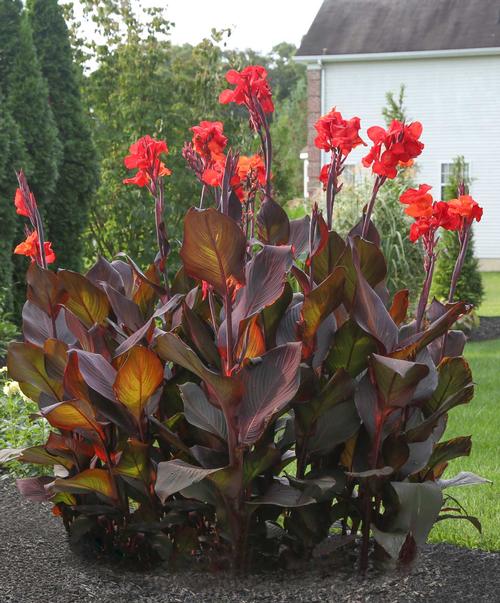
Landscaping With Cannas
There are so many ways to incorporate these showy, tropical plants into your landscape. Make the most of their impressive size by using them to hide an unwanted view or define an outdoor room. You can use cannas to dress up an outbuilding or soften the lines of a fence. Wish your patio felt a bit more private? Enclose it with cannas!
While cannas always look great on their own, consider pairing them with other big and assertive plants such as elephant ears, dahlias, sunflowers, amaranth and kiss-me-over-the-garden-gate.
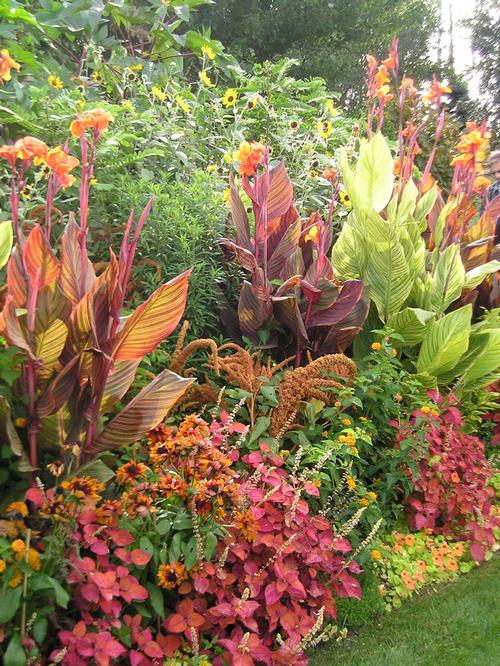
The canna’s dramatic foliage and exotic flowers take pots and planters to new heights. You can plant cannas in their own pot, or pair them up with caladiums, coleus, dahlias, euphorbia and hibiscus. Cannas come in a range of heights — short, medium and tall — so you can choose a variety that fits your container and location.
Cannas hit their stride in late summer, when most flower gardens are beginning to fade. To keep your garden colorful right through September, you can rely on cannas and late-blooming perennials such as rudbeckia, agastache, Russian sage and helenium.
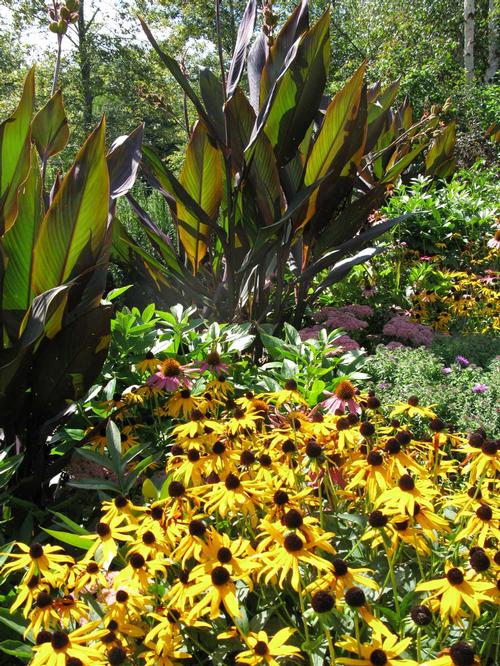
Creative Combinations
Canna foliage can inspire all sorts of wonderful plant combinations. In the second photo above, Tropicanna and Tropicanna Gold have been planted with coleus, amaranth, gaillardia, helianthus and lantana. It’s an eye-catching late summer display that will keep going right through the fall.
The colorful stripes on these cannas really glow when they’re backlit. In pots, they look terrific paired with coleus and anything with purple, pink or coral flowers.
To accentuate the drama of dark-leaved varieties such as ‘Australia’ and ‘Tropicana Black’, pair them with the equally dark foliage of coleus, amaranth, alternathera or sweet potato vine. For dramatic contrast, add a splash of lime, creamy white or yellow.
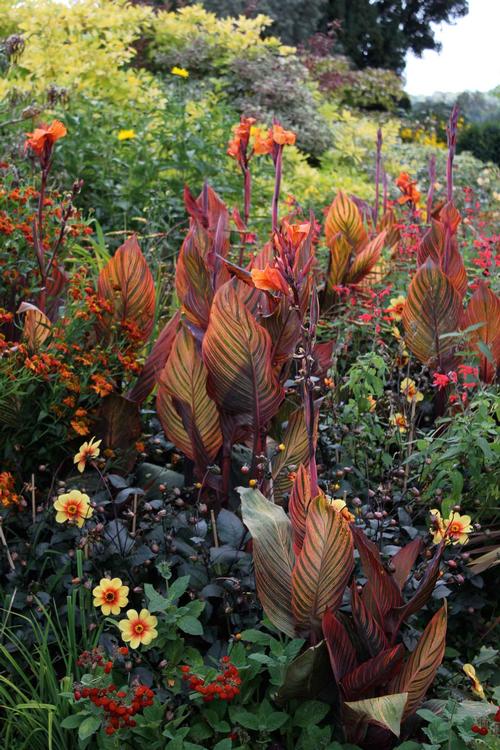
Cannas for Hummingbirds
Want to attract hummingbirds to your garden? Plant cannas with bright red blossoms such as ‘Australia’, ‘Tropicana Black’ and ‘Rosita’. They’ll keep hummers zooming through your garden all summer long.
Cannas always put on a great show — so why not put some of them to work in your garden this summer? You can shop our complete selection of varieties HERE. To learn more about planting and growing, read All About Cannas. Our in-house bulb expert, Hans Langeveld, also shows you how to plant them in this VIDEO.
